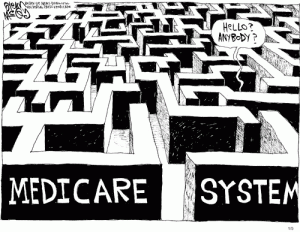Earlier this week, the World Health Organization issued new guidelines that recommend specific interventions for reducing the risk of cognitive decline and dementia.
By Steve Moran
Earlier this week, the World Health Organization issued new guidelines that recommend specific interventions for reducing the risk of cognitive decline and dementia. After reading it, I got to thinking . . .
-
This is super important because maybe Alzheimer’s is beginning to get the attention it deserves. When diseases and disease processes get widespread attention, it becomes much more likely we will find a cure and/or better interventions.
-
Today, we mostly see Alzheimer’s and dementia as a kind of losers’ lottery — where a certain percentage of us will get it, while the rest will be luckier and not get it.
-
We scan the news hoping for “the cure,” but not really believing — for good reason — that we will see it in our lifetime.
What Gets Missed . . .
There are some things that likely need more attention and represent a huge opportunity for senior living:
-
Most of us — most of the population — will not get Alzheimer’s or dementia.
-
There are some things that will reduce the risk — or at least the symptoms of dementia. In many cases, it’s often to the point of the older person dying of something else and never knowing dementia was a problem.
-
Here are the things we know make a measurable difference:
-
Regular exercise
-
Not smoking
-
Avoiding harmful use of alcohol
-
Controlling weight
-
Eating a healthy diet
-
Maintaining healthy blood pressure, cholesterol, and blood sugar levels
-
Exercising the brain, learning new things, doing puzzles
-
Social connections
-
Adequate sleep
Lemonade From Lemons
As people grow older they become more afraid of suffering from dementia and for good reason. I have this vision of local senior living communities being the “go to” place for dementia prevention before someone ever moves into your community.
Hospitals have figured out that one of the best ways they can market their services is to focus on helping community members stay healthy and out of hospitals. By doing this there is such a high trust level that when people do need hospitalization . . . the choice is easy.
Are you doing dementia prevention events?








